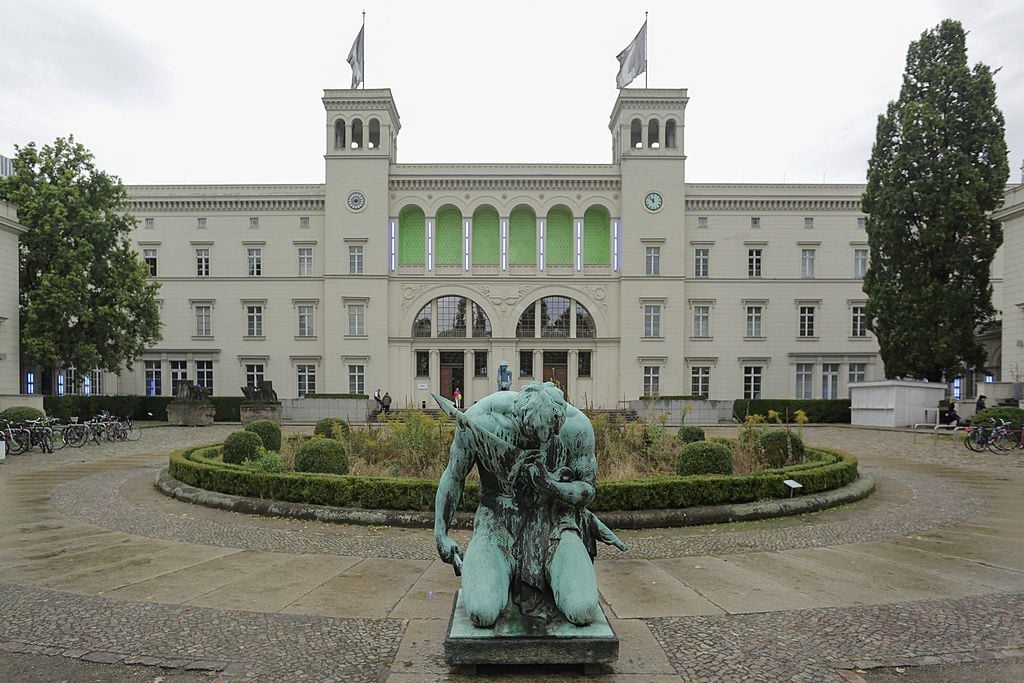Art World
The German Government Is Trying to Buy Berlin’s Hamburger Bahnhof Back From Real-Estate Developers. But Is It Too Late?
Germany is angling to buy back the site of Berlin's most famous public museum.

Germany is angling to buy back the site of Berlin's most famous public museum.

Kate Brown

The German government is stepping in with the hopes of buying the historic Hamburger Bahnhof in Berlin, one of the country’s most famous institutions for contemporary art, out of private hands. An extension off the former train station that was abandoned for decades after World War II is also likely to be demolished by a development company.
German media reports that the government is in negotiations to buy back the building from the private Austrian property investors CA Immo after it announced plans to end the lease on a key extension of the museum in order to make way for office buildings in the rapidly developing area near Berlin’s main station.
Many members of the public were surprised to learn that the museum was not already owned by the government. Furthermore, Die Welt reports that the State Museums, which run the Hamburger Bahnhof, do not even have a rental agreement with the building.
“Negotiations [are] on the right track,” said a spokesperson for the government, according to Monopol. A report in Die Welt reports that, ironically, the Berlin Senate failed in 2003 to secure the building by letting its first right of refusal slip by and allowing the site to be privatized and sold by federal company Deutsche Bahn to CA Immo.

The Hamburger Bahnhof in Berlin, Germany. Photo by Christian Marquardt/Getty Images.
Despite the ongoing discussions, one building in particular seems sure to fall by the wayside. The contract for the Rieckhallen, an extension off the former train station that has been home to the esteemed Flick Collection, hangs in the balance. It is set to be demolished as the company makes way for mixed-use commercial and residential spaces.
When news of the end of the lease first surfaced, Friedrich Christian Flick announced his plan to end the loan of his collection of 1,500 works, including pieces by Marcel Duchamp and Bruce Nauman. It was the first in a wave of collector exits from the city, prompting concern that Berlin might lose its status as an art hub. The situation for its artists has already become imperiled by the rapidly changing real-estate landscape.
Real-estate costs also prompted billionaire heiress Julia Stoschek to announce in May that she, too, was considering moving her private collection elsewhere.
“We have always stressed and supported the importance of the site as an art and exhibition location,” a spokesperson from CA Immo told Artnet News. The company declined to comment on the status of the ongoing negotiations with the German government. “We are of the opinion that the Hamburger Bahnhof, with the Museum für Gegenwart, is an enrichment not only for the micro-location, but for the whole of Berlin.”
[An earlier version incorrectly stated that the Hamburger Bahnhof is at risk of being demolished. It is only the Rieckhallen, an extension, not the train station, that is up for demolition.]